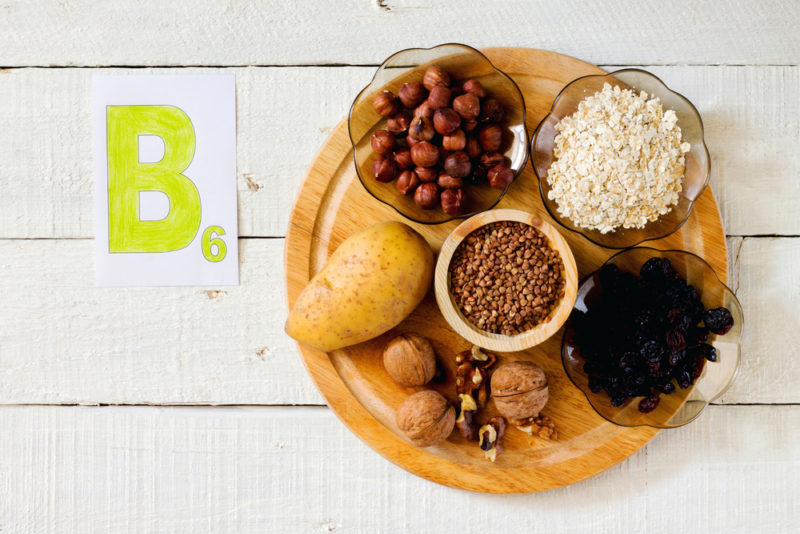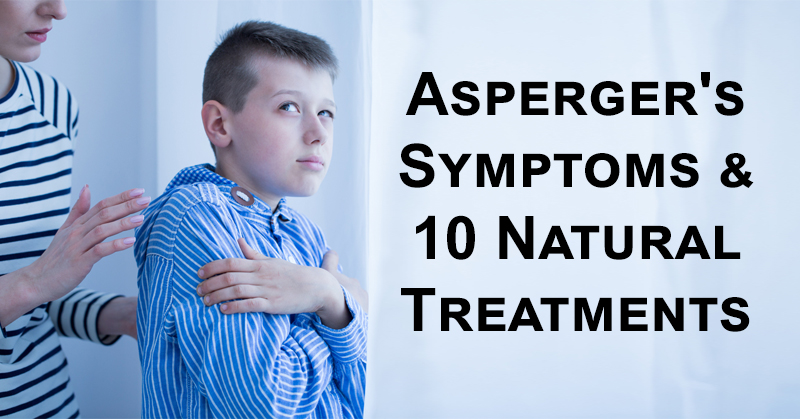Asperger’s Syndrome is a neurobiological disorder that lies on the higher-functioning end of the autism spectrum. It is characterized by developmental delays in basic skills, such as the ability to socialize and communicate with others. (1) While there is no cure, there are many Asperger’s natural treatments that have proven to be effective. Asperger’s symptoms vary widely. They may be first noticed when a child starts preschool and begins to interact with other children. Although the condition tends to improve over time, Asperger’s symptoms in adults are still commonly seen. (2)
Asperger’s Symptoms
- Impairment in the use of nonverbal behaviors such as eye gaze, facial expression, body posture and gestures in social interaction
- Extreme difficulty developing age-appropriate peer relationships
- Inflexible adherence to routines
- Fascination with maps, globes and routes
- Superior route memory
- Preoccupation with a particular subject while excluding others
- Difficulty judging personal space
- Sensitivity to loud noises, clothing, food textures an odors
- Difficulty understanding other people’s feelings
- Extreme difficulty reading and interpreting social cues

Asperger’s Natural Treatments
1. Cognitive Behavioral Therapy
Cognitive behavioral therapy is a common Asperger’s treatment method. It helps patients become more aware of thinking patterns so they can view challenging situations more clearly. This type of therapy helps those with Asperger’s respond more appropriately to different situations. (3)
2. Group Programs
Group programs help with Asperger’s symptoms by focusing on social skills. They can also serve as a support system. Group programs for Asperger’s often hold online forums, conferences, seminars and workshops to help empower those who suffer from Asperger’s and provide a sense of community among families in similar situations.
3. Speech and Language Therapy
Children who have difficulty communicating may benefit greatly from speech therapy. Speech therapists help patients with Asperger’s better understand what people mean. They help teach them how to interpret what other people say and how to respond. (4)
4. Music Therapy
In music therapy, music is used to help enhance social skills and communication. Music therapy is often paired with other practices, such as group therapy, to help reinforce communication and development.

5. Occupational Therapy and Physical Therapy
Occupational therapy and physical therapy may be used to help individuals with Asperger’s syndrome maintain their highest level of functioning each day. These types of therapies focus on daily activities such as dressing, bathing, eating, playing and personal hygiene.
6. Vitamin B6 and Magnesium
Studies have shown that the pairing of Vitamin B6 and magnesium may work as an Asperger’s natural treatment. One study found that the combination of supplements improved social reactions and improved communication in children with ADHD or autism. (5)

7. Omega-3 Fatty Acids
Omega-3 fatty acids play a crucial role in brain development. Studies have shown that supplementation of essential fatty acids may greatly benefit children with developmental orders, including ADHD and autism. (6)
8. Yoga
Yoga is known as a calming, stress-relieving exercise. It increases an individual’s sense of well-being and control. It also has the ability to help reduce aggression and anxiety. Yoga may work as a natural treatment for individuals with Asperger’s syndrome, to help them gain better control of their emotions.

9. Lavender Essential Oil
Asperger’s syndrome can make an individual very sensitive to smells, so it’s important to make sure they are comfortable before pushing essential oils on them. If they are comfortable with fragrance, lavender essential oil can help induce relaxation and promote a calming environment.
10. Magnesium-Rich Foods
Magnesium helps fight anxiety and depression. (7) Magnesium-rich foods can also help increase the production of an antioxidant known as glutathione, which improves nerve function. Add foods such as spinach, chard, pumpkin seeds, almonds, avocados, figs and bananas to your diet for extra magnesium.



